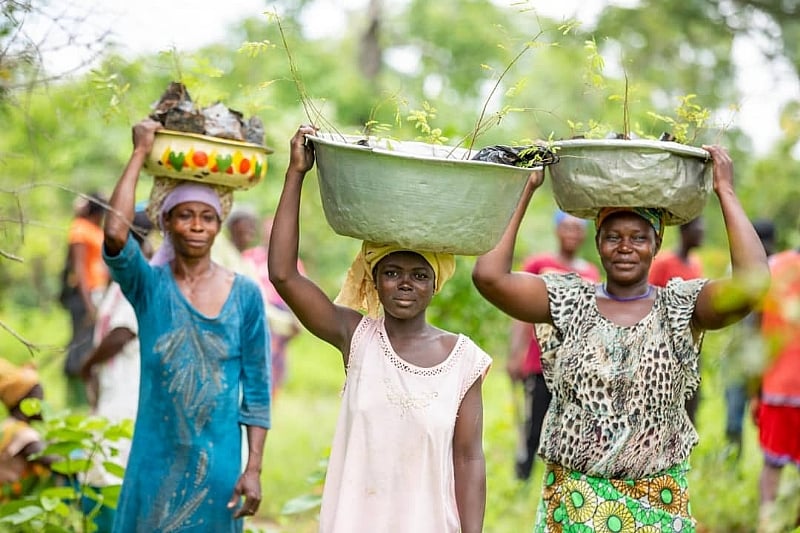SHEA collection makes a contribution to the total income of rural households belonging to different economic groups. Also, it quantifies the involvement of women in Shea nuts and fruits collection and processing.
Shea nut collection provides women collectors opportunity for upward economic mobility. Women account for 90% of Shea nut collection and are at the lowest end of the value chain.
In Africa, the unique experience of each of the 16 million rural women who make a living from Shea nut inspires us more and more every day. Shea is an important crop, both economically and socially. It employs 4 million women for export and generates approximately USD 600 million a year in income at the community level in West Africa. At the household level, Shea accounts for up to 12% of household income and up to 32% of cash available, which is earned during the lean season. Moreover, Shea nut collection and processing were found to provide a valuable source of cash income to female household members who otherwise have very few income possibilities.
Shea nut collection provides economic resilience in terms of income, assets and savings; Social resilience in the form of women’s decision-making at home. It also provides employment, medical benefits and nutrition.
Shea is crucial for rural women’s families and their livelihoods and for their generation. Shea collection and processing is a way for households to diversify their livelihood strategy and decrease their vulnerability to food insecurity and climate variability.
If the ban is imposed, the biggest losers will be the rural women’s groups, who will lose millions of dollars because the local processors who are already established will have an edge and will monopolise to dictate Shea nut price. Thus, the Shea nut prices can drastically come down to even half of the existing market prices. So, if Ghana’s Shea nut export value amounts to be USD 237 million, then the rural women will be losing USD 100 million per season due to export ban and this money will be going in the pockets of these 2-3 local processors who just employ 40-50 people in their Plants, instead at the cost of these 4 million women.
In this context, if Shea Nut export ban is implemented, there is a likely threat that rural women may not be willing to pick Shea nuts as usual for the fear of not being sold and at the very low prices after catering to the domestic processing industry which will form a cartel and abuse these women financially for their personal advantage. So this might drastically reduce the volumes of Shea kernels and hence the availability of Shea kernels to all the stakeholders involved in the supply chain.
Government is requested not to fall for developing such monopoly cartels, as the local industries already have the advantage of local presence and are successfully competing.
Need is also to invest in technology to enable women collectors to store the product and reduce distress sales. Access to loans and programs to support women in acquiring technology would enable them to seize the more profitable segments of the value chain.
Government also needs to focus on improving the quality of Shea nuts and provide training to women collectors for sustainable harvesting, storage and local value addition.
Any proposed ban needs to be carefully thought out in a holistic manner, giving due consideration to centuries-old prevalent social customs, values, practices and rural economics, and in doing so, commercial interests should be the last priority, which benefits only 2-3 local processors in creating an abusive monopoly.


